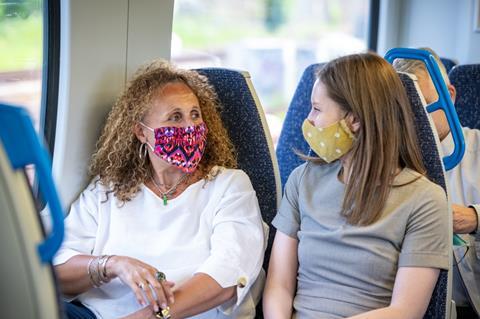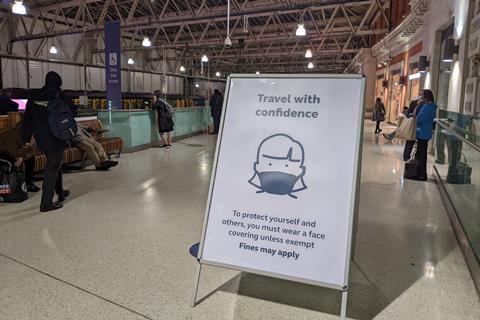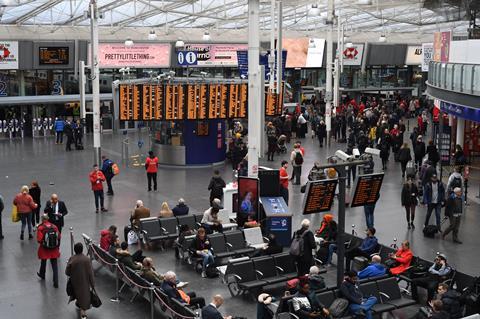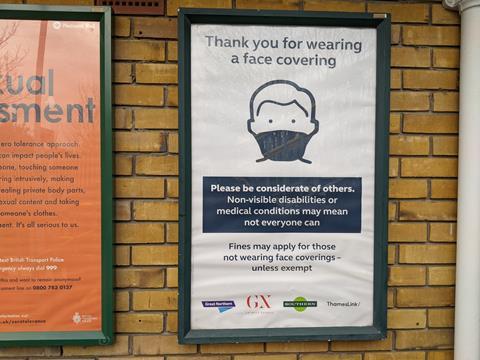
UK: Train operators across the country are introducing temporary timetables designed to offer more resilience as the Omicron variant of the coronavirus leads to increased staff absences.
The move is also expected to reduce the cost to the government at a time of low demand as people have been asked to continue working from home if they can.
The Rail Delivery Group said operators had prioritised running as many services as possible to support increased demand in the run-up to Christmas, but were now working with government to introduce amended timetables and match services to demand.

The temporary timetables will focus on known peak travel times to provide trains for key workers, school pupils and those who cannot work from home, and to ensure that key freight services can run. Where possible trains will be lengthened to provide space for more passengers when the service is less frequent.
‘The temporary timetables that rail companies are putting in place, with government support, will help ensure more reliable services with fewer short notice cancellations, so that we can continue to get people and goods to where they need to be’, explained Susie Homan, Director of People, Operations & Railway Strategy at RDG, on January 5.

‘The government has supported the railway with over £15bn since the start of the pandemic and it makes sense to better match the number of trains that are running with the number of people travelling so that the industry gets the most out of every taxpayer pound and doesn’t take more than its fair share of public money.’
The Book with Confidence scheme has been extended until the end of March, allowing passengers to change their travel plans up to the evening before departure without being charged a fee, or to cancel their journey and receive refunds as rail vouchers.
Responses
Anthony Smith, Chief Executive of watchdog Transport Focus, said ‘amending timetables is a pragmatic response’ if it prevents ‘chaotic last-minute cancellations’. However, services should still meet the needs of those who have to travel, and operators ‘must protect first and last services, provide enough space to keep passengers at a safe distance from each other and flexibility so that tickets can be used on alternative routes or times.’

Edmund Caldecott, CEO of technology company Whoosh, said staff shortages were ‘a problem which is certainly not going away any time soon, and it is simply not feasible to continuously impact the ability of the nation to travel as required’. He said several operators were now using Whoosh’s Real-Time Journey Dashboard to provide onboard travel information and customer services.
General Secretary of the TSSA trade union Manuel Cortes said he feared ministers could use the temporary timetables as cover to reduce services. He believed Secretary of State for Transport Grant Shapps ‘should give passengers copper-bottomed guarantees that rail services will return back to their pre pandemic level as soon as we have any kind of return to normality. Failure to do so would be a clear signal of what many fear are this government’s real intentions — cutting train services.’



